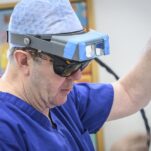Accurate Diagnosis
Analysing the history of facial pain matters. A consultant will want to understand the timing, duration, location and severity, they will discuss relieving and aggravating factors, associated symptoms, in the facial area, or elsewhere.
Medical and family history can play a part, jaw joint disorders for example can be hereditary. Life events, or lifestyle choices may be having an impact.
A physical examination is naturally part of diagnosis. Head, neck and jaw muscle movement can be assessed, internal, or external colour changes, tenderness, palpation, unwanted growths, or swelling in the glands.
There could be situations where lab analysis of tissue, or blood will assist. The latest imaging equipment can add insight, x-ray tomography, MRI, or CT scans.
Considering every piece of evidence relevant to your case counts and adds to your consultant’s insight, which is the ultimate tool. The complex, cranio-facial area can be subject to a range of issues.
Prevalent Conditions
Adhering to the principle of each case being unique is important and we do not wish to offer a list of possibilities. Mentioning conditions we often treat in relation to facial pain may still be helpful.
Dental problems are a primary cause, although less so when the pain is long term. Temporomandibular joint (TMJ) and other jaw disorders are next in line, which are more common than is appreciated and regularly cause distress beyond the jaw.
Trigeminal neuralgia, inflammation of the trigeminal nerve, is relatively prevalent, along with variations of this. A cause of high level facial pain, often described as similar to an electric shock.
Blocked, or poorly functioning salivary glands can cause wider pain. Rarer conditions may need to be factored in, such as burning mouth syndrome, or vascular causes, including giant cell arteritis.
Whilst benign cysts and lesions can cause pain, similar symptoms arise from cancerous growths. Where there is evidence to suggest this, prompt investigation and diagnosis matter, although this is thankfully a rare outcome.
Treatment At Our London Clinic
The first step is an appointment with an experienced maxillofacial consultant. They assess your condition in detail, get to know the affect this has on you and your life, before creating a personal treatment plan.
There are conditions which will respond to medication, or therapy. In others, ranging from salivary glands, to tumours, or cysts, or relieving nerve pressure, surgery may be an answer but needs careful consideration.
Our consultants and support staff understand the effect facial pain can have on each hour of the day. They are there to help, through detailed diagnosis, explanation and individual treatment. By all means get in touch with our friendly team.


